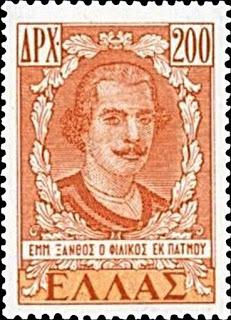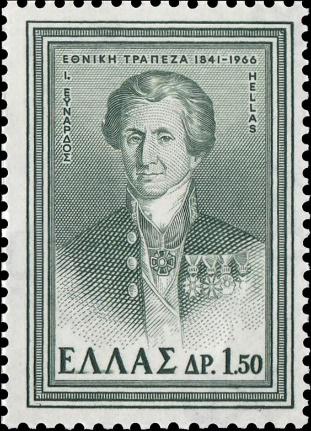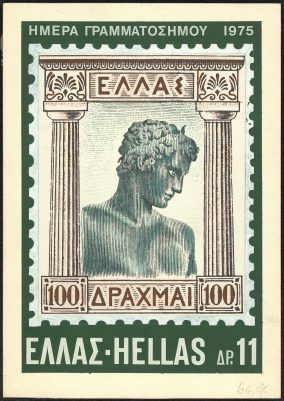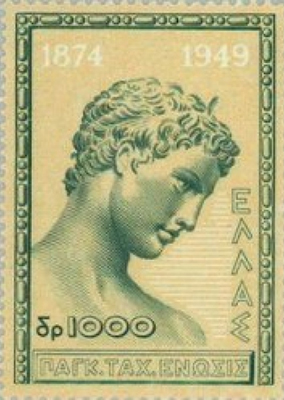The Exhibit of the month June
10 th June 323 BC Death of Alexander the Great in Babylon


A 2 drachma stamp depicting Alexander the Great, in black and brown. It is a reprint of the original stamp of 1000 drachma in black and deep blue color included in the definitive series of 1954 entitled Ancient Greek Art I.
History of the Exhibit
Perforation: 12 3/4 x 12 ½ Watermark: Greek Crown Design: J .Kefallinos Method: Lithography Printing: Aspioti ELKA Tirage: 35.608.000 Release date: 10 th July 1955 Withdrawn date: 19 th May-1977 Alexander III of Macedon commonly known as Alexander the Great, was born in Pella (a city in Ancient Greece) in 356 BC, was the son of King Philip II and Olympias, princess of Epirus. He ascended to the throne at the age of 20 and spent most of his ruling years conducting a lengthy military campaign throughout Western Asia and Northeastern Africa. By the age of thirty, undefeated in battle, Alexander had created one of the largest empires in history, stretching from Greece to northwestern India. In 334 BC he invaded the Persian Empire and began a series of campaigns that lasted 10 years. Following his conquest of Asia Minor (modern-day Turkey), Alexander broke the power of Persia in a series of decisive battles, including those at Issus and Gaugamela. He subsequently overthrew King Darius III and invaded India in 326 BC. He died on the 10 th June 323 BC in Babylon, the city he planned to establish as his capital. He did not manage to execute a series of planned campaigns that would have begun with an invasion of Arabia. In the years following his death, a series of civil wars tore his empire apart. Alexander's legacy includes the cultural diffusion and syncretism which his conquests engendered. He founded some twenty cities that bore his name, most notably Alexandria in Egypt. Alexander's settlement of Greek colonists and the resulting spread of Greek culture resulted in a new Hellenistic civilization, aspects of which were still evident in the traditions of the Byzantine Empire in the mid-15th century AD. Alexander’s military achievements and enduring, unprecedented success in battle make him the measure with which many modern military leaders compare themselves. He is often ranked among the most influential people in human history.
Older Exhibitions
Stamp of the year 1992, class of 80 drachmas from the Commemorative Edition “Macedonia was and is Greek”
Stamp of the year 1950, class 1000 drachmas from the commemorative edition for the 75th Anniversary of the World Postal










